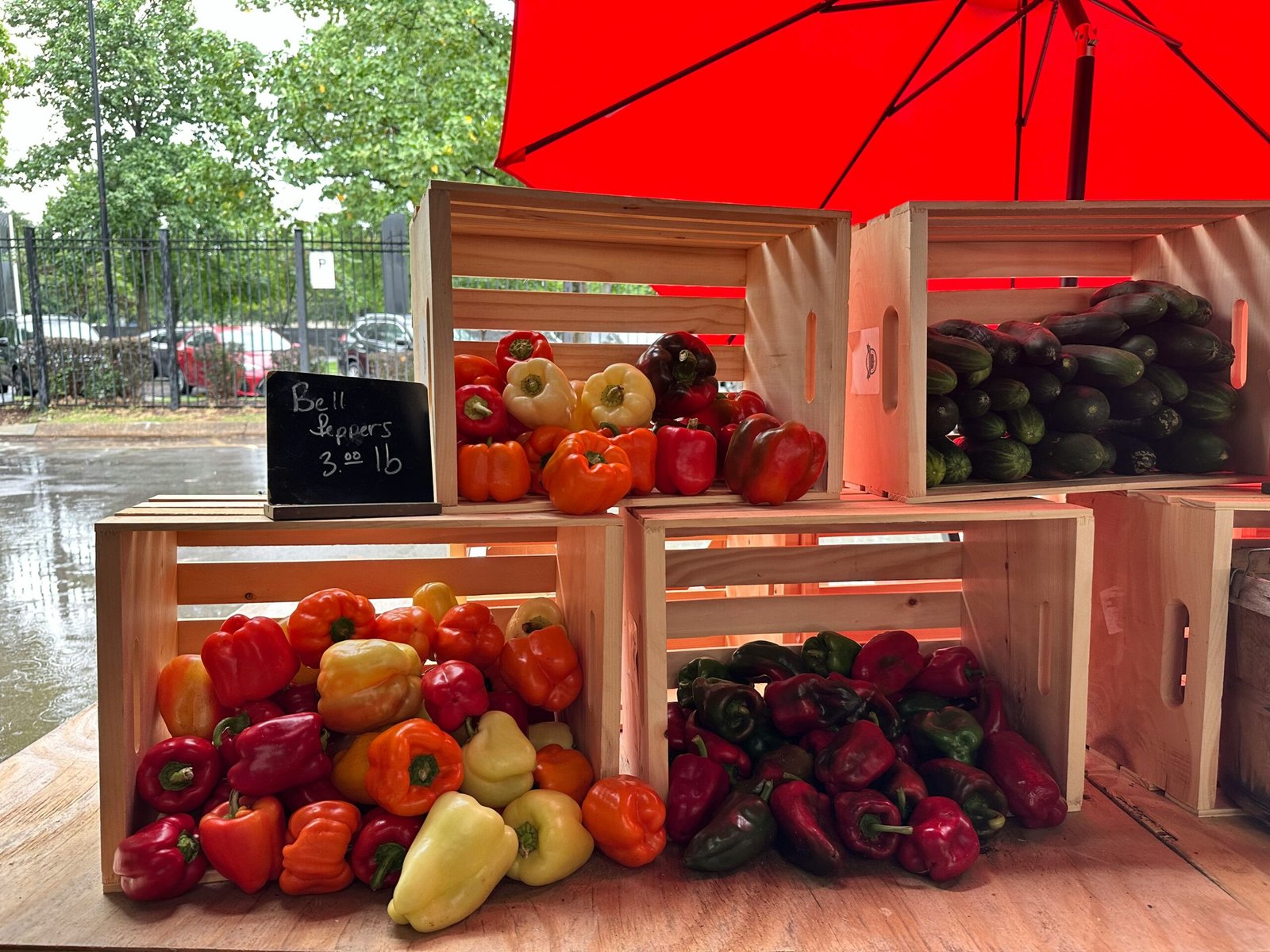Understanding Organic Farming
Organic farming is a holistic agricultural approach that emphasizes sustainability, environmental stewardship, and the health of ecosystems. At its core, organic farming is defined by its commitment to cultivating crops and raising livestock without the use of synthetic fertilizers, pesticides, or genetically modified organisms (GMOs). This vital agricultural practice focuses on maintaining the natural balance of the ecosystem, promoting biodiversity, and enhancing soil health through various techniques and principles.
One of the fundamental tenets of organic farming is the prohibition of synthetic chemicals, which can have harmful effects on the soil, water, and overall ecosystem. Instead, organic farmers utilize natural alternatives that help nourish the soil and control pests, such as compost, cover crops, and crop rotation. Crop rotation not only enhances soil fertility but also disrupts pest and disease cycles, reducing the need for chemical interventions. This method ensures that the land remains productive over time while fostering a diverse range of crops that strengthen agricultural resilience.
Biodiversity is another critical aspect of organic farming, as it promotes a multitude of plants and animal species within agricultural systems. By encouraging a diverse ecosystem, organic farms can improve pollination, pest control, and nutrient cycling, leading to a more sustainable environment. Additionally, organic practices often include agroecological principles, which integrate ecological insights into agricultural processes, further supporting sustainable food production.
In contrast to conventional farming methods, which frequently prioritize short-term yield over long-term ecological health, organic farming seeks to establish a balanced relationship with nature. This sustainable approach provides a framework for reducing environmental impact while meeting the growing demand for food. The principles and practices of organic farming contribute significantly to the well-being of the planet and its inhabitants, making it an essential component of modern agriculture.
Benefits of Organic Farming
Organic farming offers a wide range of benefits that impact not just the agricultural landscape but also the environment, consumer health, and economic viability of communities. One of the most significant environmental advantages is the reduction of pollution. Traditional farming practices often rely heavily on synthetic fertilizers and pesticides, which can leach into water sources and degrade soil health. In contrast, organic farming employs natural methods that minimize chemical runoff, promoting cleaner waterways and healthier ecosystems.
Moreover, organic farming practices significantly improve soil health. Techniques such as crop rotation, cover cropping, and the application of compost enhance the soil’s fertility and structure. Healthier soil not only supports greater biodiversity, which is crucial for ecological balance, but also increases resilience against pests and diseases, thereby reducing the reliance on chemical interventions.
From a health perspective, consuming organic produce offers numerous benefits to consumers. Organic farming prohibits the use of synthetic pesticides, resulting in lower pesticide residues on fruits and vegetables. This adherence to natural farming methods may also contribute to potential nutritional advantages, with some studies suggesting that organic crops may contain higher levels of vital nutrients, including antioxidants.
Economically, organic farming presents significant opportunities for farmers and local communities. The growing demand for organic products has led to increased market demand and premium pricing. Farmers who transition to organic methods often enjoy better profit margins, fostering a sustainable economic model that benefits broader communities. Additionally, organic farming encourages local sales and supports rural economies through job creation, thereby enhancing the resilience of agricultural sectors.
In essence, the manifold benefits of organic farming encompass environmental sustainability, health advantages for consumers, and economic rewards for farmers, thereby cultivating a sustainable future for all.
Challenges in Organic Farming
Organic farming presents a viable alternative to conventional agricultural practices, yet it is not without its share of challenges. One of the primary issues faced by organic farmers is pest management. Unlike conventional agriculture, where synthetic chemicals are used to control pests, organic farmers must rely on natural methods. This can include the use of beneficial insects, crop rotations, and organic-approved pesticides, which may not always be as effective or readily available. Consequently, the risk of crop loss due to pests can be higher, especially during the initial stages of conversion to organic practices.
Additionally, the costs associated with organic certification can be daunting for many farmers. Obtaining certification requires rigorous adherence to specific standards and practices, which often involves considerable time and financial investment. These costs can act as a barrier for small-scale farmers who may struggle to maintain profitability while transitioning to organic production.
For traditional farmers attempting to adopt organic practices, there is often a steep learning curve. Transitioning from conventional to organic farming entails not only changing farming practices but also acquiring new knowledge about soil health, biodiversity, and organic regulatory requirements. This shift can lead to initial setbacks in yield and profitability that may discourage further efforts.
Market access also poses a significant challenge for organic farmers. While demand for organic produce is on the rise, establishing reliable distribution channels can be difficult. Many organic farmers find themselves competing with larger entities that have established supply chains and marketing strategies. Additionally, climate change is impacting yields and planting schedules, further complicating organic farming efforts. Finally, the need for supportive policy frameworks is critical to address these barriers and provide the necessary assistance to organic farmers, ensuring their contributions to sustainability and food security are recognized and enhanced.
The Future of Organic Farming
The future of organic farming is poised to be shaped by a confluence of technological advancements, evolving consumer preferences, and supportive policy frameworks. Innovations such as precision agriculture tools are rapidly emerging, allowing farmers to optimize resources and enhance crop yields while minimizing environmental impacts. These technologies include sensors and data analytics, which enable more accurate monitoring of soil health and crop conditions, thereby facilitating tailored farming practices aimed at soil sustainability.
A pivotal aspect of organic farming’s future is the emphasis on genetic diversity. By promoting a wider range of crops and creating resilient agricultural ecosystems, farmers can better withstand climate-related challenges. This diversification complements agroecological approaches that harness the natural interplay between various species to promote ecosystem health. Such strategies not only improve soil fertility but also enhance biodiversity, which is crucial for long-term sustainability in agriculture.
Furthermore, the integration of artificial intelligence (AI) in organic farming practices holds tremendous potential. AI can assist in analyzing vast datasets to predict pest outbreaks, optimize breeding processes, and improve farm management decisions. By utilizing these advanced technologies, organic farmers can increase productivity while adhering to their commitment to sustainability.
Consumer demand for organic products continues to rise, urging producers to adopt more sustainable practices. This shift in consumer behavior can heavily influence market dynamics and push for substantial policy changes that support organic farming initiatives. Governments worldwide are recognizing the importance of sustainable agriculture, and policies promoting organic farming can lead to enhanced food security, reduced environmental degradation, and greater resilience against climate change.
Ultimately, by embracing innovation and responding to consumer expectations, organic farming is well-positioned to play an integral role in achieving global sustainability goals. As these trends evolve, the organic sector will remain vital in addressing the pressing challenges of the 21st century.




The Benefits And Advantages Of Drip Irrigation
[…] Organic Farming: Cultivating a Sustainable […]
Understanding Maximum Residue Limits (MRL) In Vegetables: Public Health Impacts And Trade Implications
[…] risks, necessitating proactive measures to minimize MRL. A multifaceted approach incorporating IPM, organic farming practices, and advanced agricultural technologies can effectively reduce pesticide levels, ensuring […]